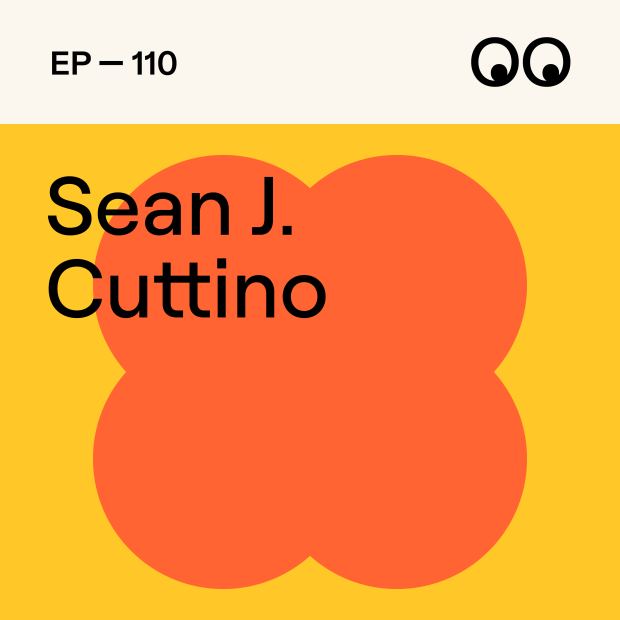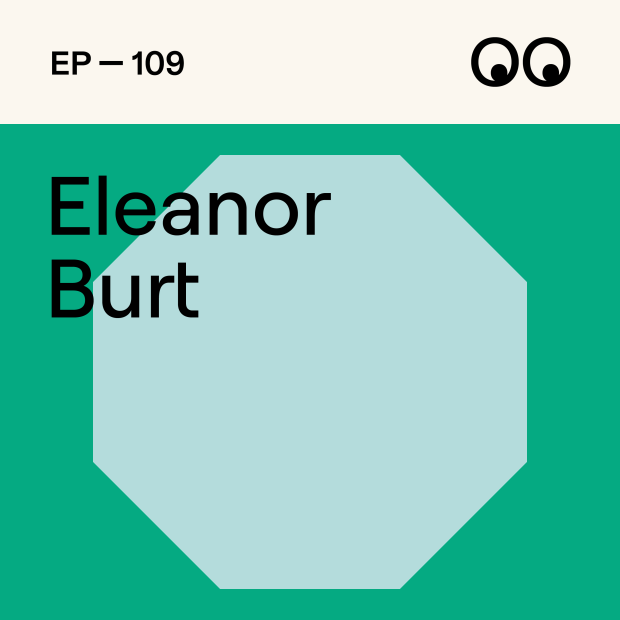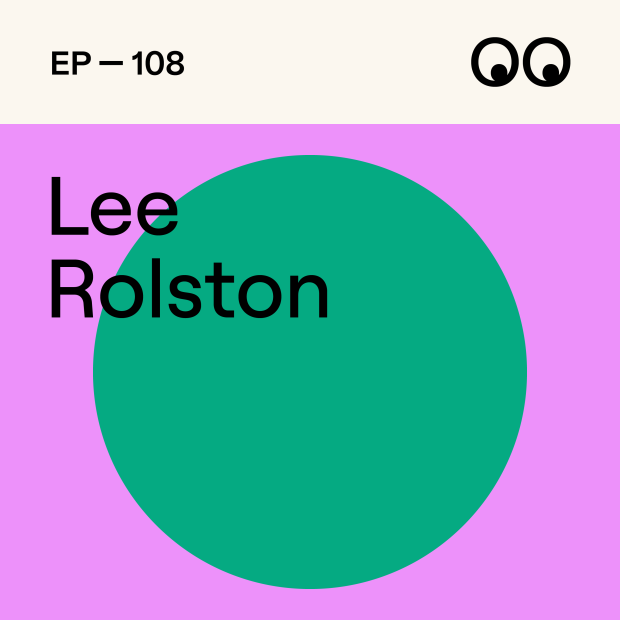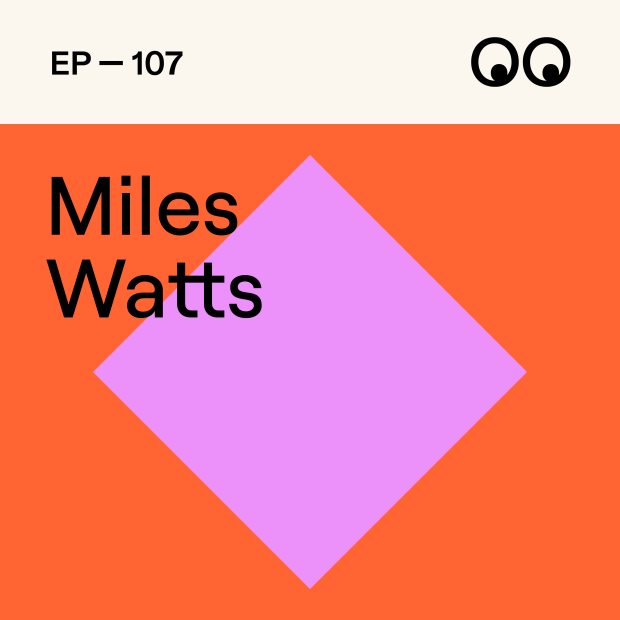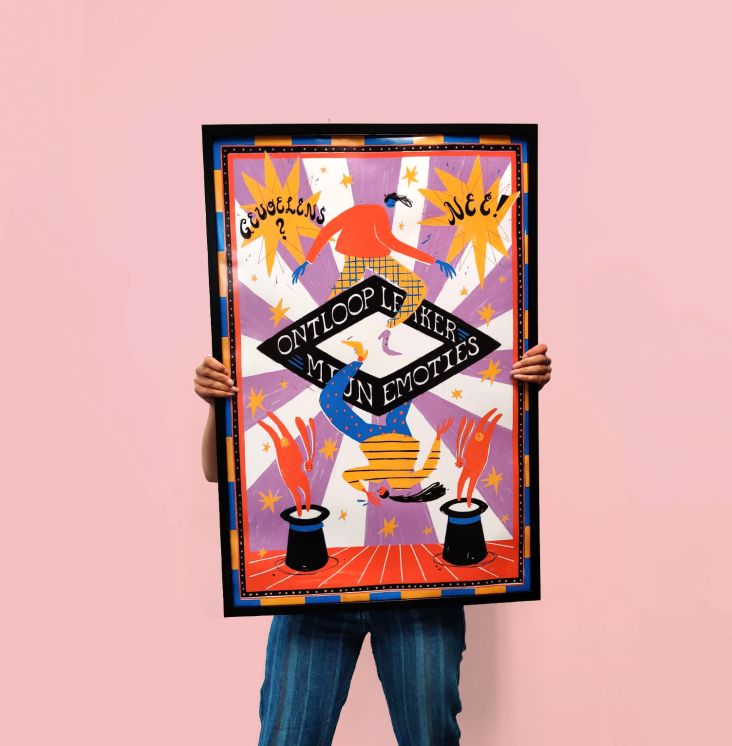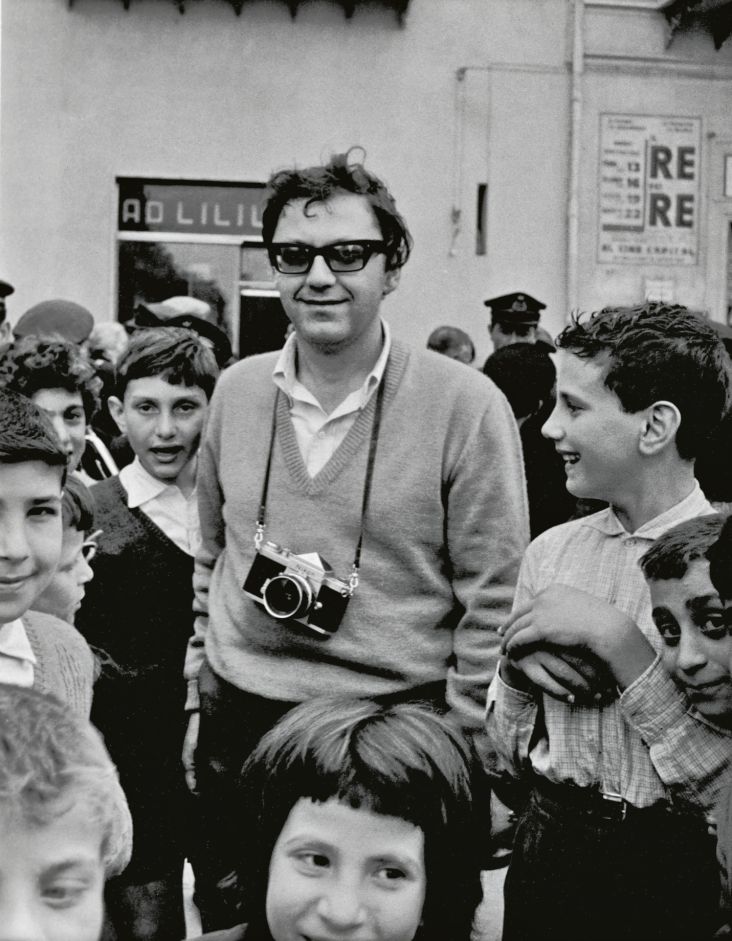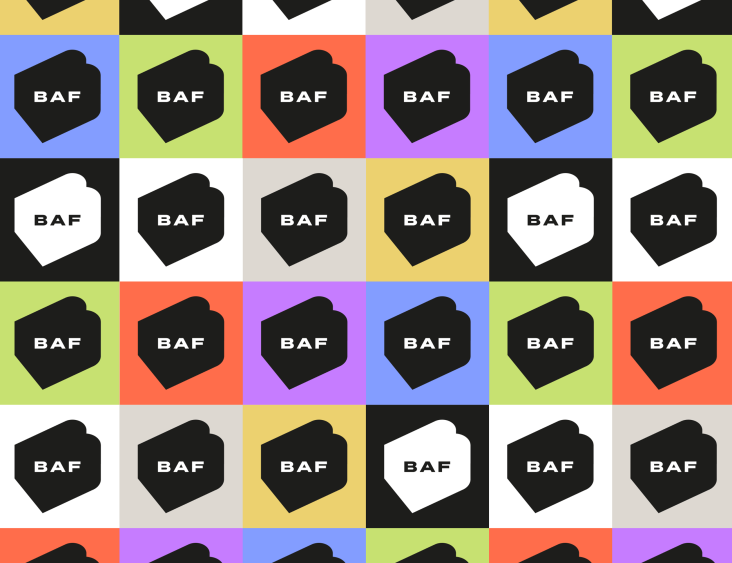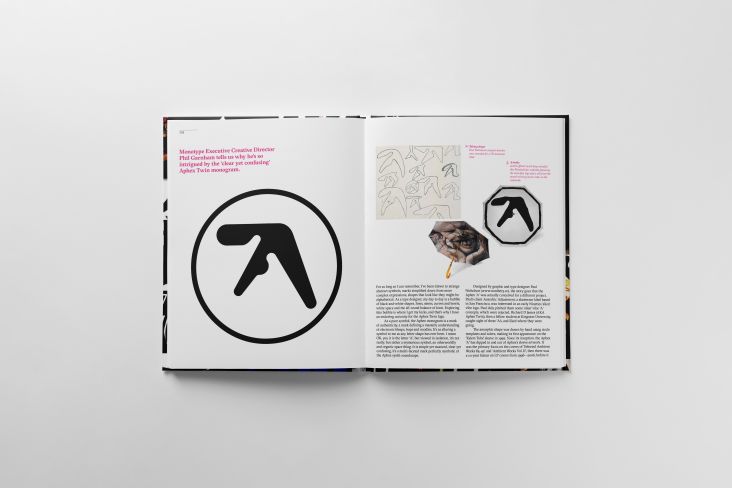Founders, Freelancers & Rebels: new book dispels the fear of going solo
We explore coach Helen Jane Campbell's excellent new book and what it can teach independent creatives.
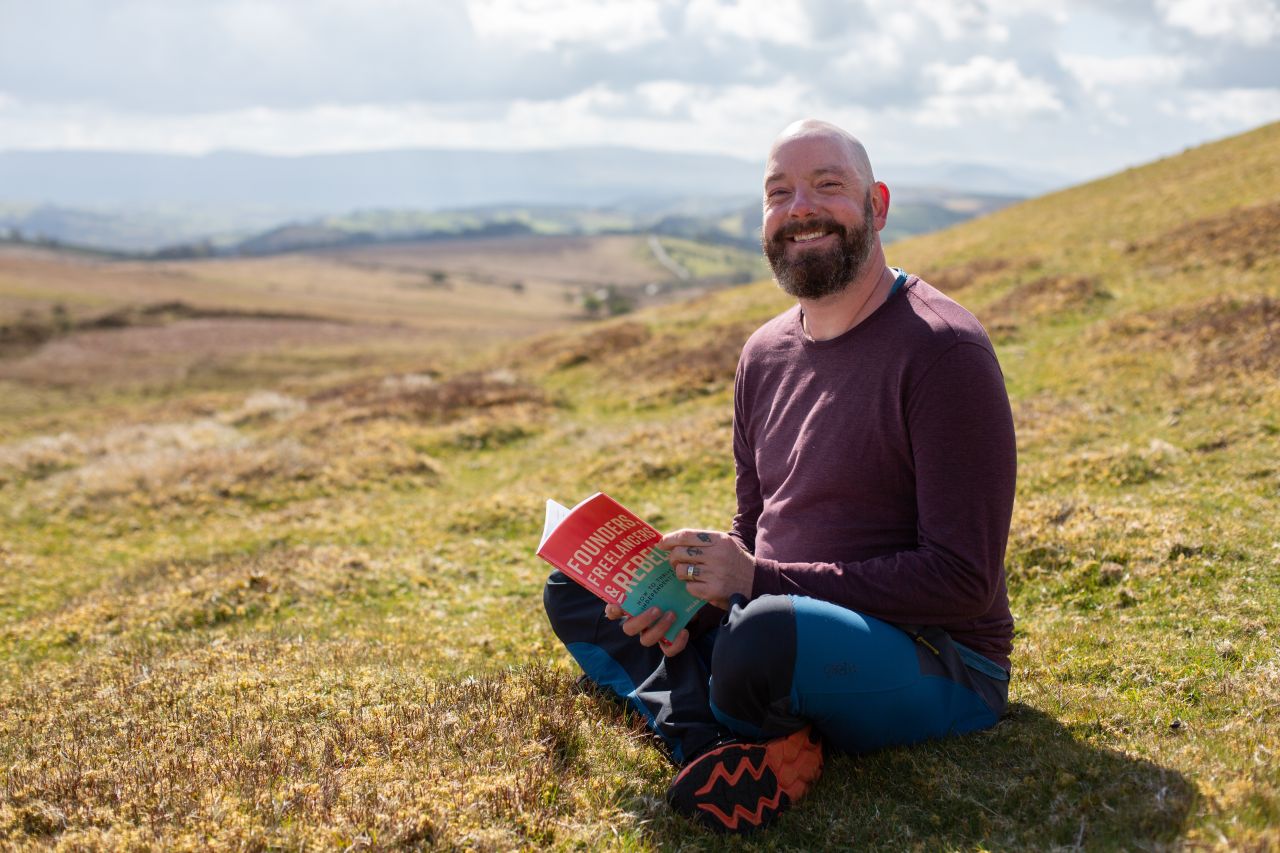
Graham Nolan by Billie Charity
Whether you're a founder or freelancer, creative entrepreneurship is hard. Not only do you have to constantly battle with self-doubt, but you also feel the need to show a face to the world that's the exact opposite. Consequently, many independent creative founders and freelancers share a longing for connection, reassurance and motivation.
Well that's exactly the need that creative coach Helen Jane Campbell addresses in her new book, Founders, Freelancers & Rebels.
In the book, Helen interviews inspiring, brave, creative experts across the UK and the US, tapping into some incredible insights and pulling them together into this friendly guide to offer the support we all need occasionally.
"This book's for you if you've stopped feeling 'hungry' for new client work, you're starting up for the first, second or third time, or you've simply run out of steam," she tells us. "I intend to offer a wealth of ideas and fresh perspectives to inspire you at any stage of your independent creative career."
How the book was made
It's a subject that Helen is in a strong position to write about. An accredited life and business coach living in Worthing, West Sussex, she specialises in helping creative people. She began working for herself in 2009, and today, she supports individuals and teams with 1-2-1 and group coaching.
"I'm a firm believer in true authenticity, not: 'fake it til you make it'," she adds. "I work thoughtfully to help clients feel good inside and outside. I truly believe there's no point in appearing shiny in your photos if you feel yucky inside. I'm here to work with mindset as well as helping with career goals."
So, what sparked the book? "I've always believed that if you want to be a writer, you have to write regularly and share some of your writing with the world," she explains. "So I used to publish a blog post every Sunday night on LinkedIn; that was my writing habit. I'd cover topics such as the 'Sunday night fear' and 'imposter syndrome'."
She'd consistently done this for more than 30 weeks in a row when a publisher approached her. "They'd been reading my blog and asked if I could write a book-length version," she explains.
Rebel yell
Where, we wonder, does the word 'Rebels' in the title fit in? "I've always felt like I didn't fit in with the majority," Helen explains. "I was the only girl in the Boys' Brigade youth club as a teenager. I studied practical subjects at school, such as art and drama, that took me out of the classroom and into studios, theatres and galleries. I've never been good at sitting still in rows, and I like to learn in a practical, hands-on way, guided by my senses.
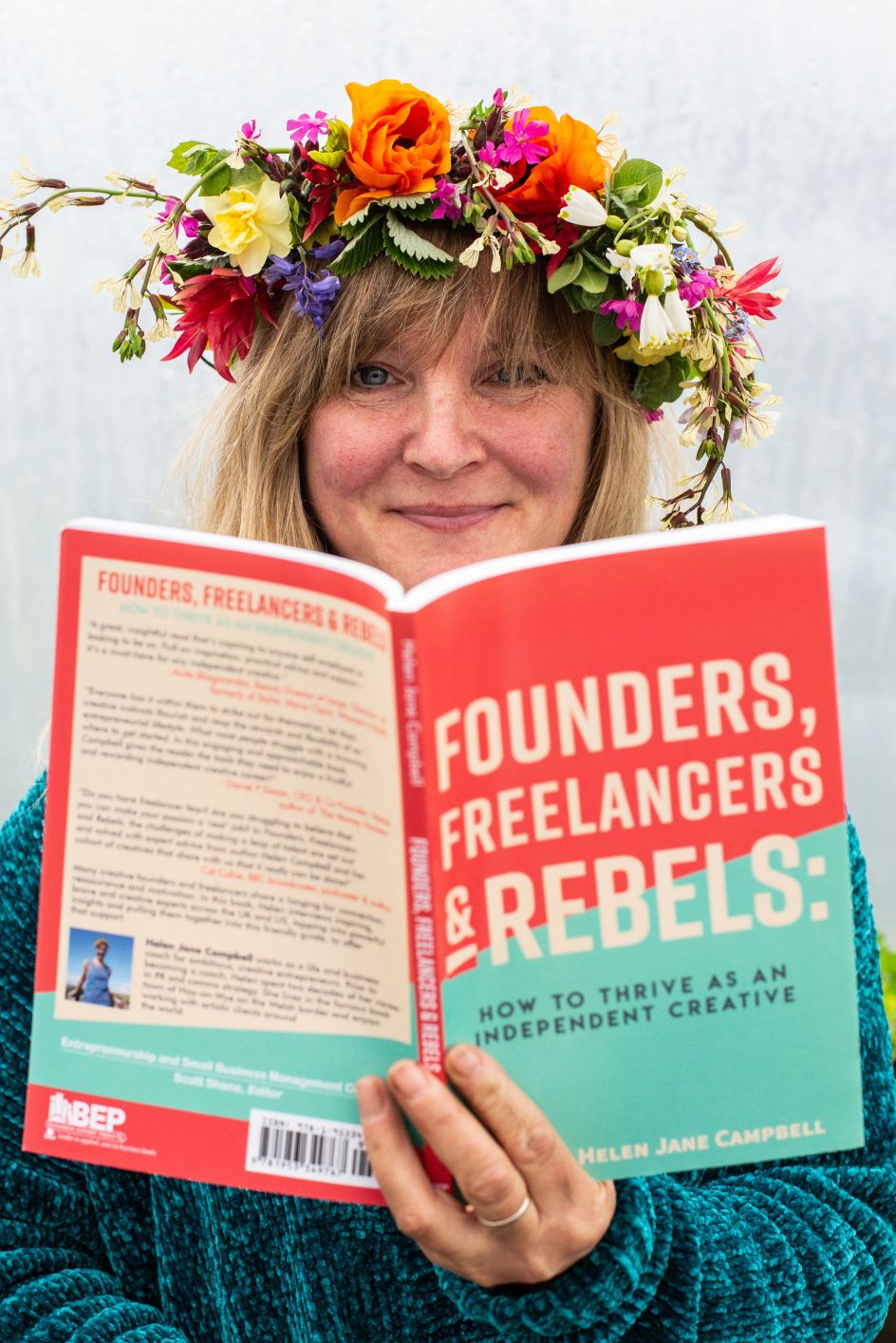
Layla Robinson by Billie Charity
"When I worked in PR – which I did for 20 years – I'd be out on boats, inside factories, tasting products at fayres or learning a new skill, from finance to kung fu. This made me a brilliant and enthusiastic advocate for my clients and their products, compared to those PRs who decided to try and do the job by sitting at their desks all day. So my restlessness became my superpower."
In short, Helen is here for creative people who feel like they don't quite fit in, and she promises to help them nurture that restlessness and its energy and power rather than suppressing it. An ethos that runs throughout Founders, Freelancers & Rebels.
Journey of exploration
"I wrote the book I would have enjoyed reading when I set up on my own as a consultant," she explains. "I'd run teams, managed budgets, been a spokesperson on behalf of eye-watering amounts of investment and worked with intimidatingly high-profile leaders. Unfortunately, that did not equip me to start and run my own consultancy.
"I'd worked inside agencies on behalf of household names with big budgets, and there it felt natural – even easy at times – to negotiate contracts, have tough conversations and develop creative campaigns. But these familiar things suddenly felt alien to me when I had to do them as a freelancer. So, in writing my first book, I went on a journey of exploration.
"I spoke to experts about each aspect of working for yourself in a creative role, and I share the best bits with my readers in the book. For example, I interviewed a former barrister who now trains teams in how to have difficult conversations; I talked to a neuroscientist about the reasons that we sometimes hold back or lack momentum and asked the painter David McAdam Freud, son of the artist Lucian Freud, about his creative process.
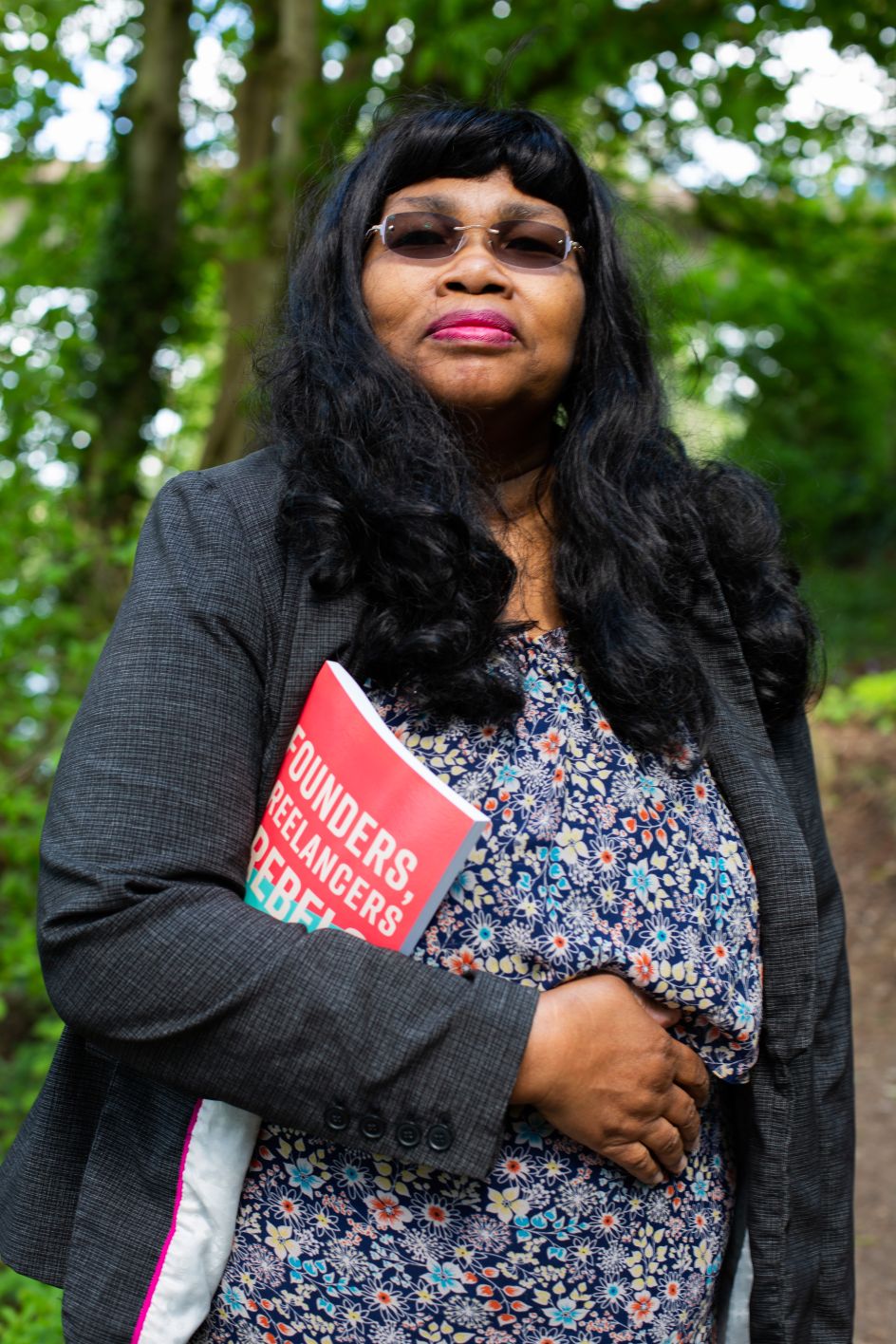
Marva Jackson Lord by Billie Charity
"Writing the book itself was a mammoth task for me, and I now run year-long coaching programmes for authors so that those embarking on their first book have the support, expertise and encouragement they need along the way."
Imposter syndrome
A theme she returns to time and time again is imposter syndrome. "Many of my creative clients struggle with calling themselves an author or an artist or even admitting out loud that they are creative," she explains. "So we work a lot with mindset, self-belief and self-trust.
"Consistency builds trust, not just in others but also in ourselves," she adds. "If I show up to write regularly, then there's evidence that I am a writer." And regularly doesn't need to mean 'full time'; she qualifies. "Making the time to pursue a passion or talent is a big theme for many of my clients. But even 10 minutes a day can help some of us move out of that stuck place and closer to fulfilment."
In short, many of us need to unlearn the habits of self-doubt and poor confidence that life has instilled in us. "Often there will have been someone in our lives who's told us that our creative work isn't a 'proper job'," she explains. "Or we'll perhaps believe that to be a writer, artist, or creative person, there has to be some sort of external endorsement or validation before we can even begin. This holds many people back from starting or completing their creative projects."
Coaching can offer that cheerleading and support to get us started and keep us on track, as well as inviting a mindset shift over time. "I've had clients land big-name publishing deals, get their own radio shows, and land dream creative contracts. Their talent was there all along, and the work we did together helped improve their confidence, self-belief, and self-trust so their creativity could thrive."
Coping with recession
Right now, of course, the global economic downturn means these goals seem distant for many. But Helen's own story points to the truth of the adage that 'when life hands you lemons, make lemonade'.
"I used to work in financial PR as an account director, and the 2008 financial crisis meant I was made redundant," she recalls. "That was the start of working for myself, initially in PR."
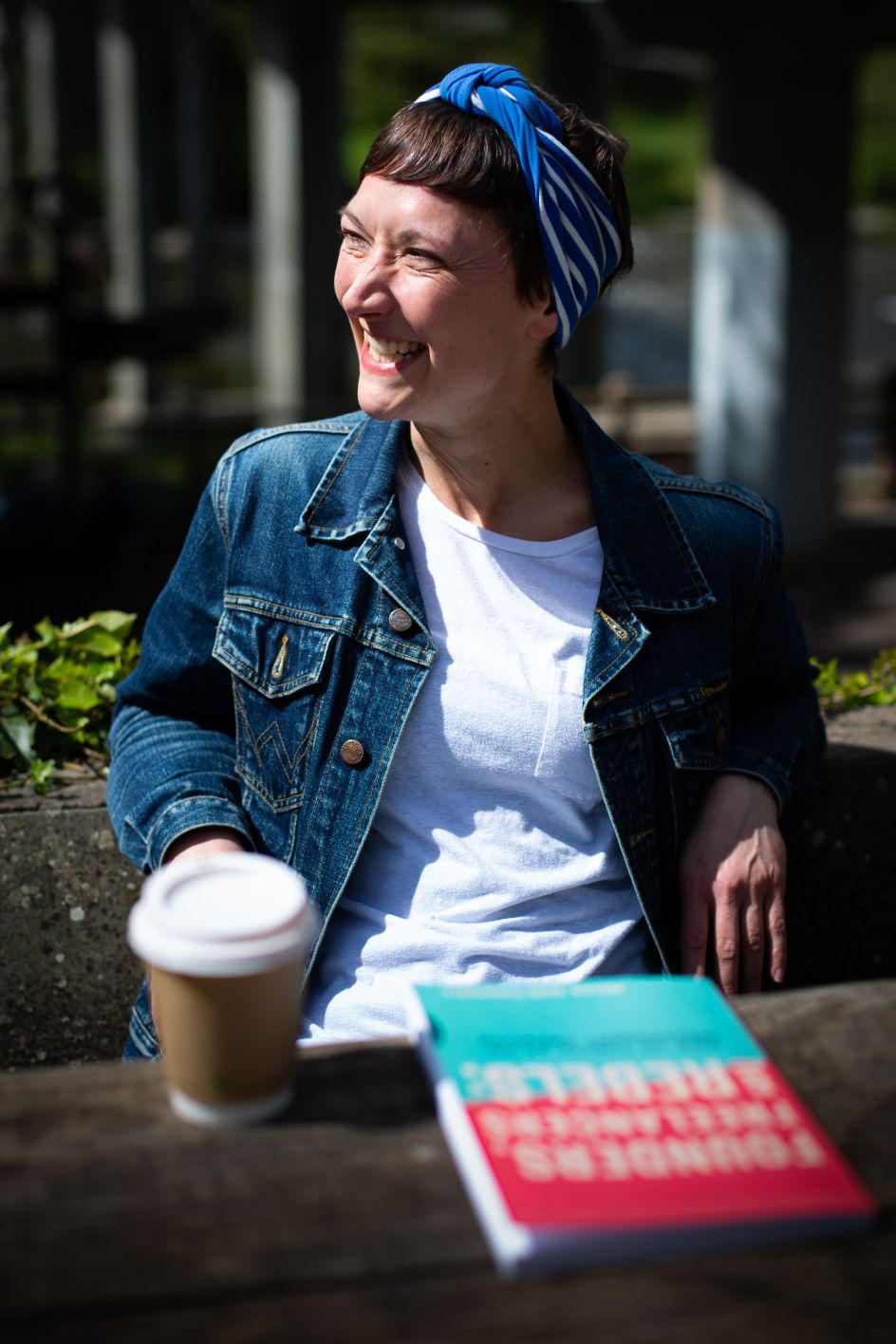
The author, Helen Jane Campbell
Back then, iPhones were a new concept; Instagram didn't exist yet, and she'd have plenty of face-to-face meetings and conversations with journalists and clients. "Before I pitched a big idea to a client, I'd often speak to a number of senior journalists about the idea I'd had, by phone or in person, and make sure it appealed to them before I even pitched it," she recalls.
"I got used to working in that way, and that's still my mode. People tell me it's impossible to get journalists or potential clients to pick up the phone, but that's not my experience. I'm no longer in PR, but I still love making new contacts and learning about what writers want. "
The lesson in this for creatives today? "Winning work can be really tough for creative people because we often want to spend as much time as possible making art or writing and might resent the time-consuming task of promoting and selling what we do. Part of my role is to help people find a way to do this that doesn't feel icky."
And here's one final lesson about freelancing from Helen's own career. "My friend Jon had worked with me in an insurance company when we were in our 20s, and he became a freelance photographer before I started working for myself," she recalls. "I was faffing about choosing a logo and a company name, and I called him to ask his advice about setting up on my own.
"He told me I only needed one thing to start my own business: 'Clients!' he hollered down the phone, 'You need Clients!' And he was right. Yes, of course, eventually you'll want a brand and an accountant and everything. But without clients, you have no income to pay for it. So get your first client as soon as you can."
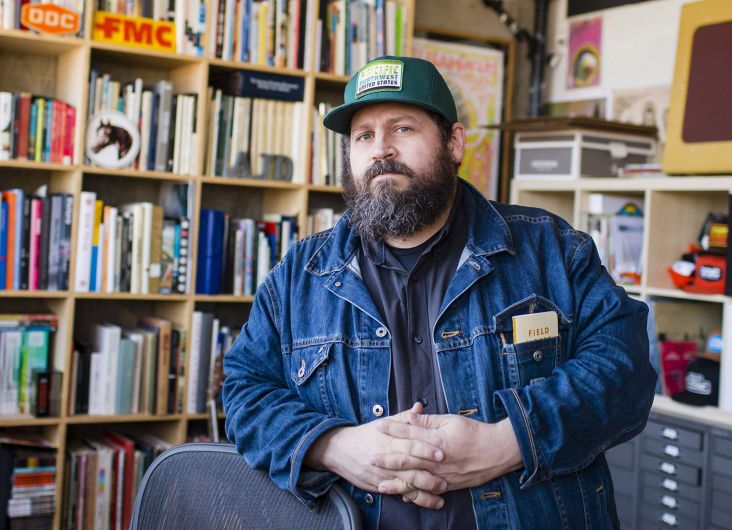


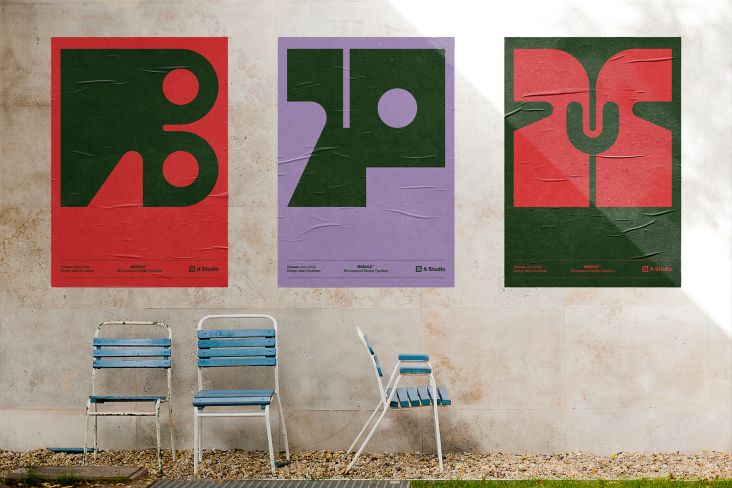
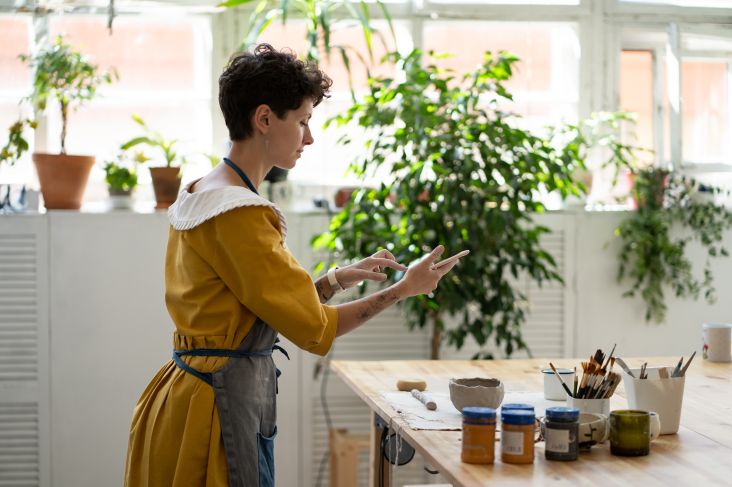

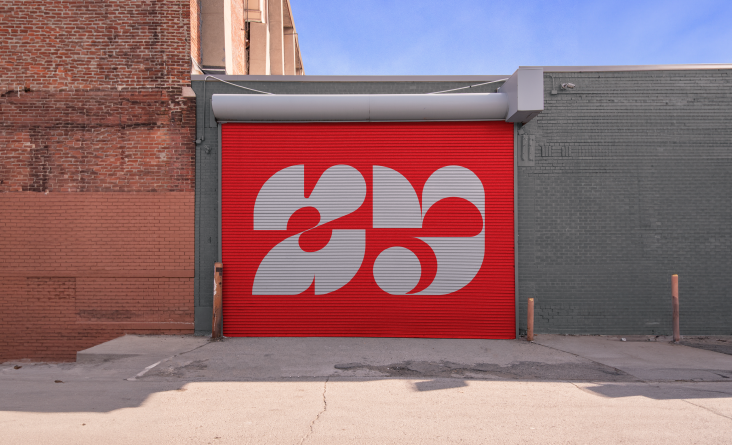
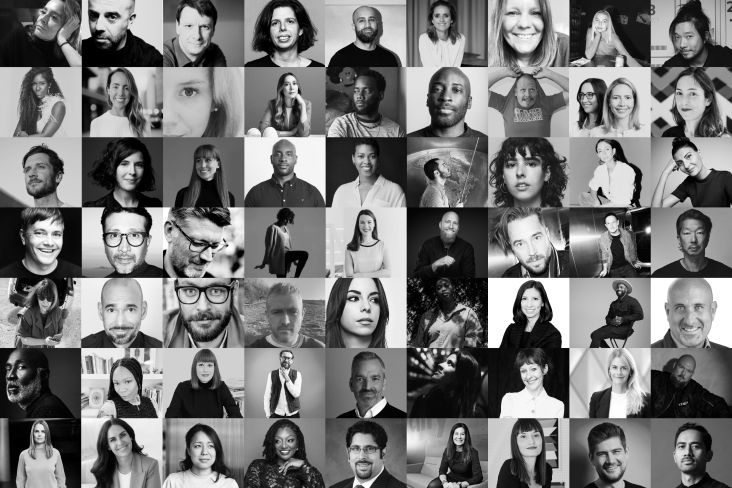
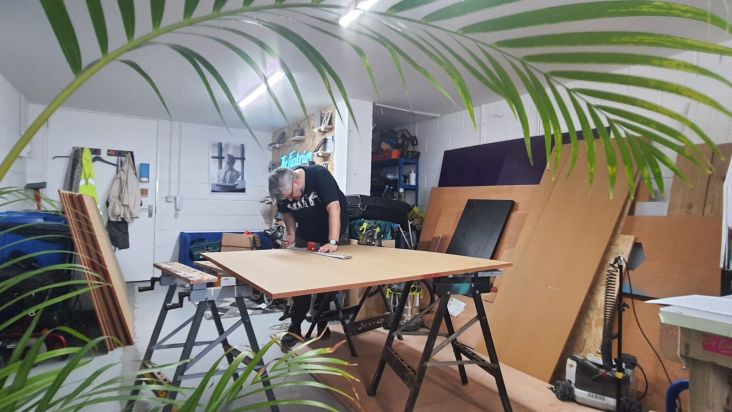
](https://www.creativeboom.com/upload/articles/86/862919952c0ad18439004228895a431dc6e45ffc_732.jpg)
